A writer explores his father’s heritage in Harare and Bulawayo
In 2013, I took a five-night trip to Zimbabwe, where my father was born. It was a diversion from a family trip to South Africa for my cousin’s wedding. My father refused to travel across with me; he said he wanted to remember Zimbabwe how it was. I wanted to see things as they were, and to gather some sense of where my dad’s side of the family came from, and what happened to the community they left behind.
I was born in Johannesburg, and though we emigrated to Australia as a family nearly 30 years ago, I have maintained a strong personal connection to the place. My mother and both her parents were born there too, but I am the only one of my immediate family of four who has retained a South African passport. It’s part of my identity.
My father’s side, on the other hand, is firmly rooted in a historical paradise that vanished before I was born, with its independence in 1980—Rhodesia. But my memory of the place it became is of sweaty, hurried stopovers on the way to Johannesburg to visit my grandparents. Under Apartheid-era sanctions, the closest direct flights to Joburg from Australia were to Harare, Zimbabwe’s capital. But each time we transited we never left the airport.
Then, in 1997, my parents took my sister and I to Zimbabwe, with the aim of seeing the wildlife and Victoria Falls. At that time, there would still have been some relatives of my father’s living there. And yet, perhaps due to the increasingly tense political climate, we never deviated from the magnificent touring itinerary planned; any memories of the Rhodesian idyll left relatively undisturbed after an incredible couple of colonial nights at the Victoria Falls Hotel.
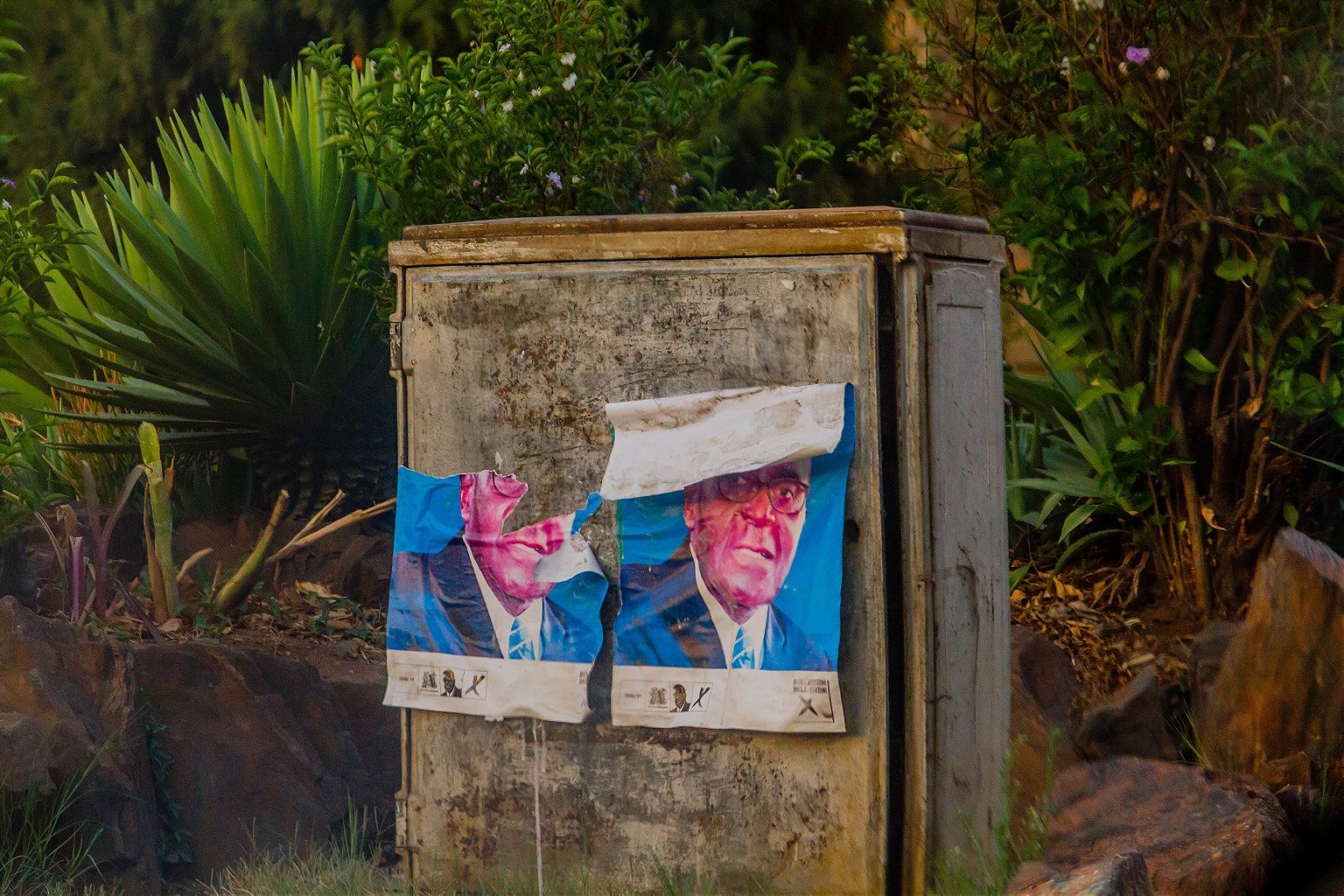
We drove at high speed through the bush in an open-topped game-chasing vehicle during an awesome electrical storm. We visited a local school starved of books and arranged to send them a box or two; we marvelled at loaves of bread inflated to Zim $2,000 (maybe $2USD at the time) a loaf; gawped at the ubiquity of Mugabe’s portrait. Dad’s Swiss Army Knife was stolen from his hotel room bedside. I refused to trade my Nike baseball cap for a soapstone carving and ate myself up with confused 13-year-old guilt afterwards. Victoria Falls was unforgettable from a chopper piloted by an unhinged ex-military pilot. That’s more or less what we did in Zimbabwe.
But ever since then, I grew ever more curious about father’s past there in Harare and Bulawayo, the country’s second city, known for main thoroughfares built by Cecil Rhodes wide enough for a turning span of oxen. My father left for Joburg with his family at 17, so that he could avoid the draft into what would have involved fighting on the wrong side of history. The Rhodesian Bush War, or the Second Chimurenga, was an insurgency and counter-insurgency that raged for 15 years, eventually establishing majority rule, promising a new beginning for Zimbabwe under the leadership of Robert Mugabe. While he finished high school in Johannesburg and eventually met my mother, a number of his childhood friends were drafted and killed.
In my teens and 20s, as the news about Zimbabwe became increasingly disturbing, I became more interested. Around 2008, when Zimbabwe closed itself off to foreign media, a period of systematic political violence known as “the Fear,” I became obsessed with traveling there again.
My grandfather had long since died. So I tried to interview my father, his mother, and his uncle Ralph, former Mayor of Bulawayo, by then living in Cape Town. I didn’t know what questions to ask, really. I read every contemporary fiction and non-fiction account of Zimbabwe I could find, and some historical ones as well, but I knew I had to go there for myself.
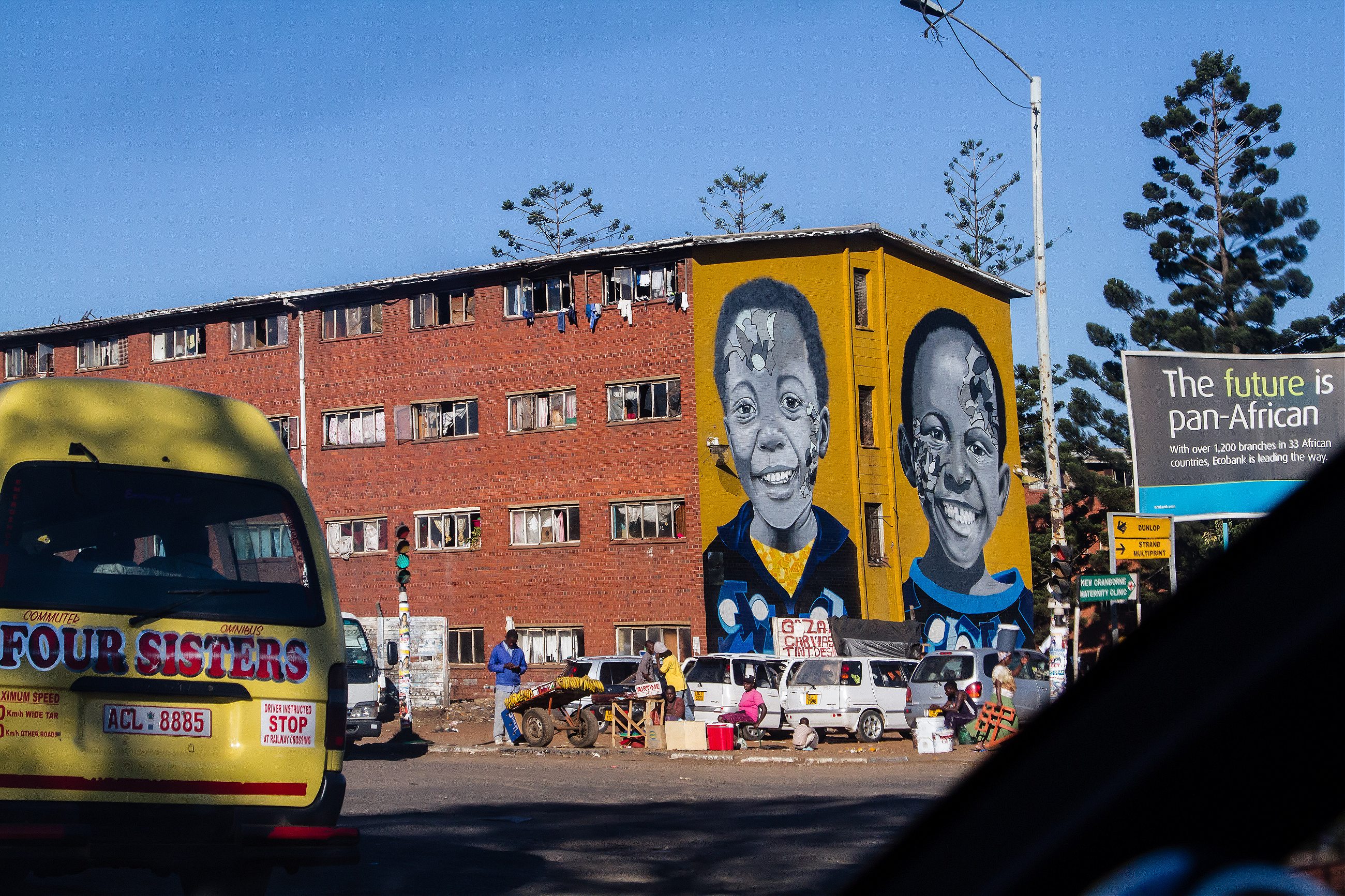
My father was born in Bulawayo when it was the industrial center of southern Africa, but he only spent his first few years there.
I knew from speaking with my grandmother that my father’s house in Salisbury was built on a 4000-square-metre plot, behind a long solid wall; prime position at its enviable Mount Pleasant Drive address. It was the first and only house that my grandfather had purpose-designed and built for his family.
My grandmother had told me how it was opposite Mount Pleasant High School, with a tennis court, a huge lawn, a swimming pool out the back. My teenage father lived there with his two sisters, their needs readily met via servants’ bells in nearly every room. These rooms, even for the time, were big. Each space within the house was cavernous of its own, and even the servants’ kaia of not ungenerous proportions.
In my minds’ eye I saw an edifice ideal to hold court at the zenith of a country. Its construction rooted in a kind of idealism blind to the fact that the country was shortly due a complete and sudden refashioning. It would have been plain to see that even as the house was being furnished, majority rule was imminent.
When I eventually did visit what was once my father’s house, in Harare, circa 2013, nearly 40 years after he left, the long white wall, still stood across from the high school, on Mount Pleasant Drive. I could see the blinds rotting, the eaves silently collapsing. That big lawn no longer green.
Cooking smells and children’s laughter and a sense of familial chaos echoed from its current residents. The interior had undergone an economic and cultural conversion; the servants’ kaia has proven excellent for stockpiling; there was now an extensive vegetable patch, mielies (corn) where the pool was; free-range chickens on the tennis courts. Egg-laying hens in a long coop down the side; many beehives scattered around the back, near a sort of open rondavel with a blackened 44-gallon drum in the middle for cooking without power. A generator to the side with a broken companion bore and pump to theoretically provided water independent of sporadically functional town mains. Though still visible, the servants’ bells were all defunct. It struck me how nothing had changed and everything was different.
The house’s owner of nine years had lost his job at one of Zimbabwe’s biggest banks after 20 years in finance. When I knocked on his gate as a passing stranger, he was raising bees and chickens (the ones on the tennis court were free range) and made peanut butter, too. He gave me a jar and wouldn’t let me pay. He told me a declining economy, as he put it, is not helped by decaying infrastructure. Through the house, all his baths and buckets were full of water. So were his water tanks. He kept everything full, and said he would do so until he could fix the bore.
I understood why my father had refused to come with me.
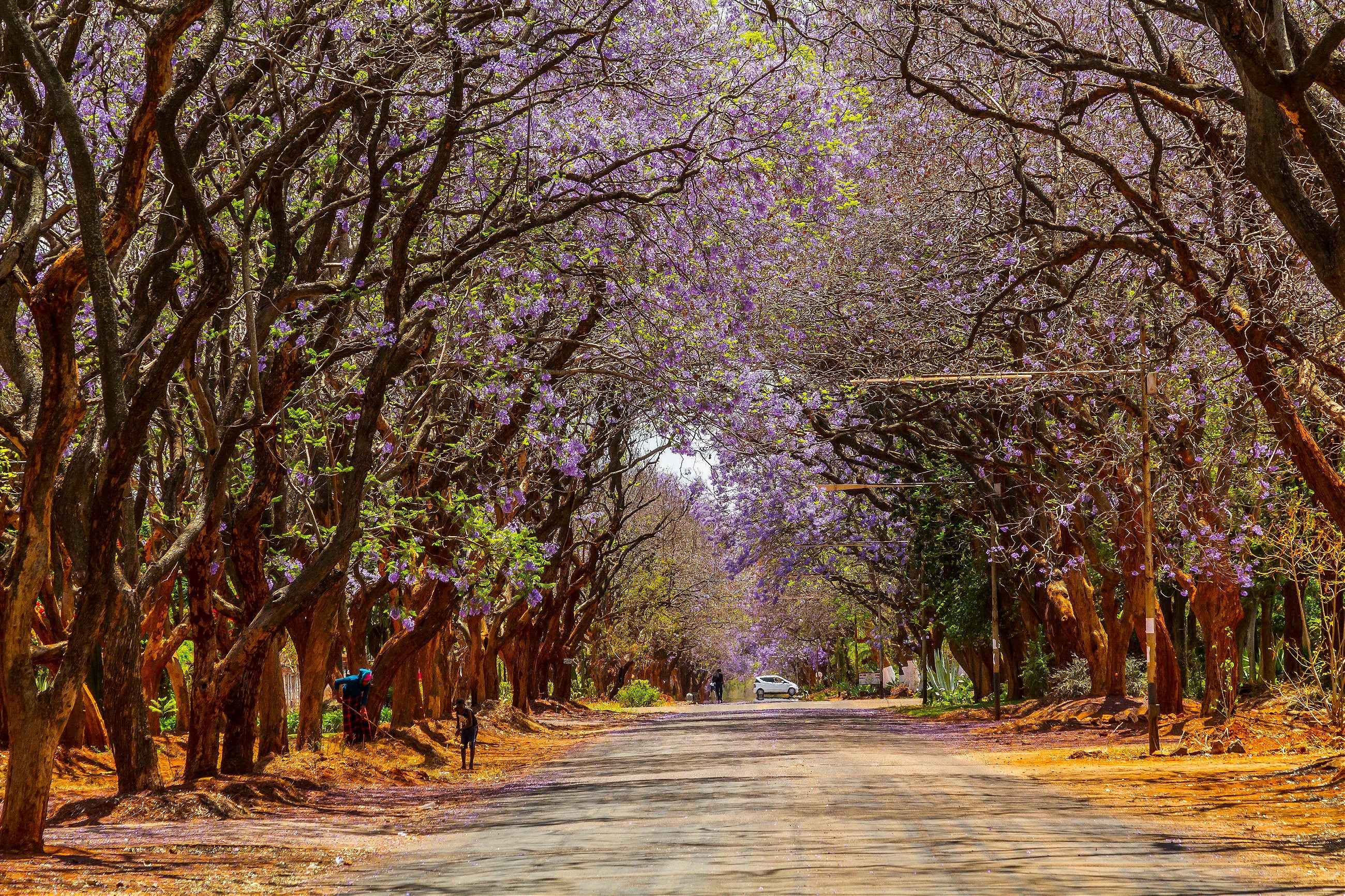
My father is part of what was a sort of dynasty of grain-milling Harrises; his father was one of five brothers. Though instead of going into the family business my father rebelled, and became a doctor.
The current incarnation of the Harris Brothers milling company my great grandfather Casriel ‘Cessy’ Harris once established in Rhodesia, long out of family hands, is now National Foods, still responsible for feeding much of Zimbabwe under a brand of flour the Harrises established, Red Seal.
National Foods’ headquarters in Harare is a solid reminder of lost strength of industry here, in terms of its imposing facade and sheer size. And it’s also a reminder of the stress and anxiety of the executives who operated there: the executive corridors I visited had a thickly barred door built into the entry way between reception and the offices.
The then-CEO Jeremy Brooke was going fly-fishing in Mozambique the following week. His rod stood behind his desk. On one of the wood-panelled walls hung a small framed photo of a houseboat on a lake near Harare. The boat was called the Sir Standish. Named after my great-uncle Standish by his son, who now lives in southeast Queensland. A long, boxy thing, awkward to look at on the water; it was actually a converted railway carriage.
Jeremy told me the company was writing a history. He hand-drew a family tree, starting with my great-grandfather Cessy, and ending with me.
He took me on a factory tour. National Foods’ workforce was less than a quarter of what it once was. Jeremy, despite the highly sensitive nature of supplying a national staple under unimaginable economic and political conditions, had succeeded in bringing the store from empty to full. No mean feat. With assets that should long have been replaced but have also been depreciated out of existence, the mill was a working museum. No capital had been available for major works or elective repairs or maintenance. The objective was survival alone. For the workers, and for the business as a whole.
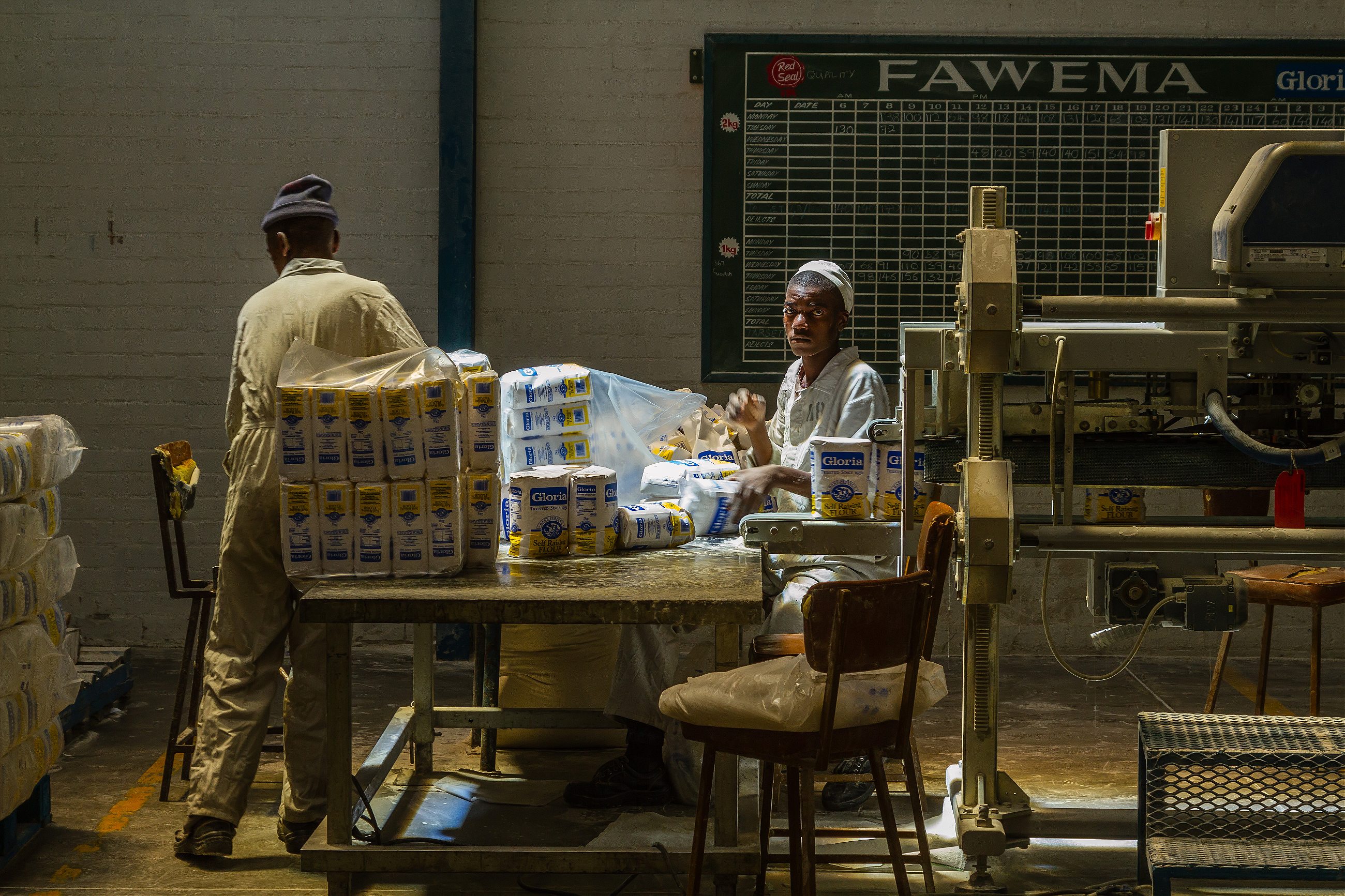
It’s a cliché to say now, that Zimbabwe, at independence, had established itself as the bread basket of southern Africa. Now, the World Food Programme is months away from wrapping up an intensive three-year attempt to help Zimbabweans feed themselves once again.
“We came within a whisker,” Jeremy said, “within a day of closing altogether.” Motes of flour float in and out of our conversation, settle in snowdrifts on color-coded pipe work. Workers in blue overalls hustle in and out.
At one point Jeremy reached into a production line and grabbed a handful of feedstock. “Grist to the mill.”
We ended up out the back, on the railway line, where product is loaded from the roof into waiting wagons. I move to walk down the line. “I won’t take you down there,” he says. “A worker fell through the roof there. They haven’t cleaned up the mess. The factory inspector is supposed to come. It’s been five days.”
AT MOST THERE WERE 150 JEWS IN THE WHOLE COUNTRY
When I visited Bulawayo, I arrived to a tin-shed airport beside the gleaming new one, which finished two years prior, couldn’t be commissioned because it hadn’t been paid for. Named after one of Mugabe’s political nemeses, Joshua Nkomo, and it did open, shortly after my visit.
My host, gregarious one-time boxer and motor racer, local raconteur Rodney Broomberg, drove me through pitch-black streets dodging the occasional pedestrian and cyclist. The airport site was designated in 1955 when Bulawayo was one of the biggest cities in Southern Africa, at a significant distance from the city center, to accommodate for the city’s expansion. That never came, and the population of approximately 800,000 is on the decline. Harare (three to four million people) had a few streetlights; Bulawayo seemed to have none.
I had a beer with Rodney and two Portuguese engineers and their Zimbabwean agent (though he says is from Malawi) who were selling equipment to the government electricity utility. The agent had three mobile phones lined up on the bar. The following day I saw the smokestacks of the Bulawayo power station smouldering ineffectually, incredibly close to the centre of town.
My two dinner companions arrived. The first was leader of the remnant Jewish community and proprietor of the eponymous Solomons Supermarket, Hylton Solomon. At most there were 150 Jews in the whole country, down from maybe 7,000, with around 70 left in Bulawayo, which had long nourished the largest proportion of the community. (Since we met, Hylton has since sold and moved to Cape Town.)
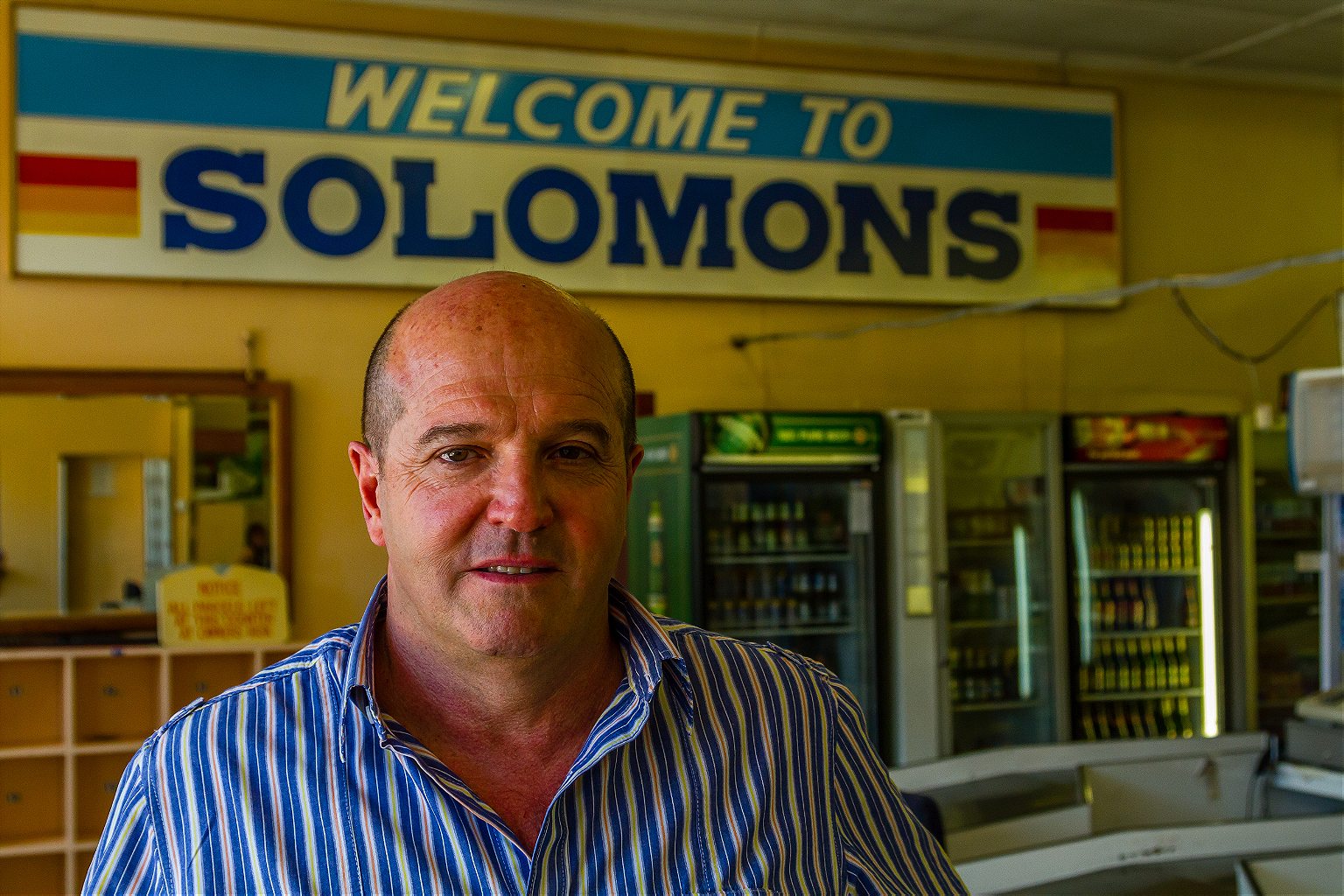
The second was David Coltart, the former Minister of Education, Sport and Culture of Zimbabwe, who fresh from the end of his term in office. It was my great-uncle and twice-former mayor of Bulawayo Ralph Harris who had encouraged me to meet with Coltart. I had just spent time with Ralph, in his 80s, in Cape Town, and he said David could offer some perspective on present-day Zimbabwe. (David’s book was published in March as The Struggle Continues: 50 Years of Tyranny in Zimbabwe.)
David explained that Ralph had been a client of his “dour” Presbyterian Scottish banker father Bill. Over time, Ralph and Bill developed a very close friendship. Ralph had said to me that he and Bill were “Bosom pals,” that if ever he had “a good true friend, that was him.”
The Coltarts become a part of the social fabric; they went to Harris weddings and bar mitzvahs. “We were really drawn in,” David said. “And they were always incredibly generous towards my parents.” He recalled the gift of a beautiful radio on his father’s retirement in 1969.
The Coltarts were often invited around to the Harris’s place on Clark Road and it turns out that it was in Ralph’s backyard that David, one of the founding members of opposition party the Movement for Democratic Change (MDC) may have had his strongest formative taste of politics. He says he was about twelve when they visited the Harrises one evening, and the last Prime Minister of Rhodesia Ian Smith, was there. David was introduced to Ian Smith and shook his hand.
“And as a young boy, you can imagine, what an impact it had,” David said. “I find it quite ironic now, because I’m very critical of Ian Smith, now. But at the time, it had quite a profound impact on a young boy.”
David told me he was optimistic about Zimbabwe’s future.
“If you turn to Zimbabwe, it has every possible ingredient to be an outstanding country,” he said. “The huge missing ingredient, of course, has been democracy and good governance. We’ve been blighted by fifty years of terrible leaders. Starting with [Ian] Smith, leading on to Mugabe.”
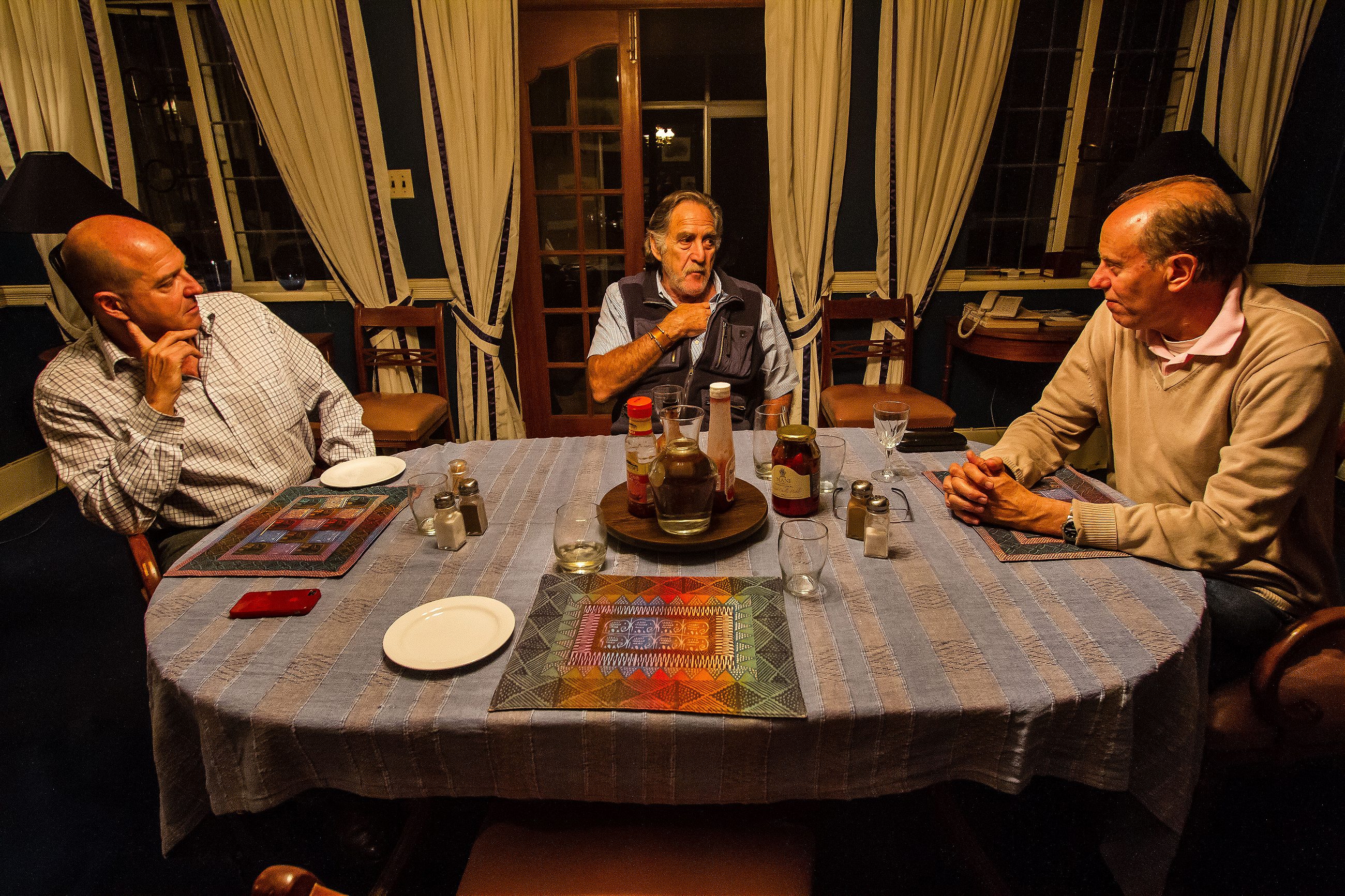
The following morning Hylton whisked me off for a full tour of my Zimbabwean Jewish heritage—former houses of generations of relatives, former community businesses among a derelict industrial zone. We spent a long while wandering the immaculate Jewish cemetery, cleaned up by Hylton alone, where my great-grandparents are buried.
The synagogue would have been the centerpiece of that tour, but because of an electrical fire in 2003 it is now a burned and twisted ruin. People risked their own lives to save the sifrei torah from the blaze. Hylton had saved the synagogue’s book of marriage contracts; before I left, he carefully cut out my grandparents’ certificate for me to take back to Melbourne. But the edifice itself is lost. Recognizable, yet sold to an evangelical church and in the process of a haphazard conversion.
On the other hand, the Bulawayo City Hall is much as it would have been. I was deeply moved by how the officials and bureaucrats treated me like a dignitary. They called their colleagues to meet me; they let me into the archive, allowed me to wield the ornate civic mace donated by my great grandfather and former mayor Cessy in the elaborately furnished Mayoral Parlour, and made me sit for a photo with a framed portrait of him, which they took off the wall for the occasion. As I left the building, I noticed Ralph’s mayoral portrait on the wall, as well as one of his late wife Sylvia, known for her beauty and warmth.
Walking back out into the heat and dust of central Bulawayo, I thought about how Hylton had told me that even the Jewish school in Bulawayo still runs kippot and Hebrew lessons without a single Jewish child. And I was reminded of how I had felt at my father’s old house, in Harare. How nothing had changed and everything was different.
I thought how while I was there, the ex-banker turned beekeeper told me all the honey was sold out and his beekeeping gear was starting to get him stung, fingering the holes in the suit. I said I would send an Australian beekeeper’s outfit.
I sent it as soon as I returned to Melbourne that October. In mid-December, he emailed to let me know it arrived:
“Sometimes we believe things once they have happened. On behalf of
myself and my family we would like to say a very big thank you for the
gesture as when you were here we never took your promise seriously.”
And at the end of January, he sent me photos of himself, kitted up, holding freshly harvested honeycomb, in what was once my father’s living room.